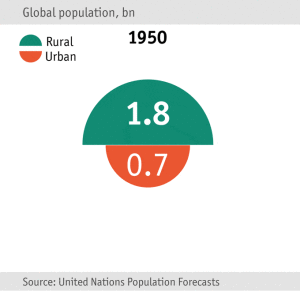The Economist – A Planet Of Suburbs
No comments yet Thirty kilometres south of central Chennai, just out of earshot of the honking, hand-painted lorries roaring up Old Mahabalipuram Road, you seem to have reached rural India. The earth road buckles and heaves. Farmers dressed in Madras-checked dhotis rest outside huts roofed with palm leaves. Goats wander about. Then you turn a corner, go through a gate, and arrive in California.
Thirty kilometres south of central Chennai, just out of earshot of the honking, hand-painted lorries roaring up Old Mahabalipuram Road, you seem to have reached rural India. The earth road buckles and heaves. Farmers dressed in Madras-checked dhotis rest outside huts roofed with palm leaves. Goats wander about. Then you turn a corner, go through a gate, and arrive in California.
Lakewood Enclave is a new development of 28 large two-storey houses, wedged tightly together. The houses are advertised as “Balinese-style”, although in truth they are hard to tell apart from any number of suburban homes around the world. Outside, the houses are painted a pale pinkish-brown; inside, the walls are white, the floors are stone and the design is open-plan. They each have three bedrooms (middle-class Tamil families are small these days) and a covered driveway to protect a car from the melting sun. Just one detail makes them distinctively Indian: a cupboard near the door for Hindu gods.
A quarter of a century ago your correspondent taught in a school not far from these houses. It was a rural area; bonnet macaques would sometimes invade his shower. Now farmers are selling their small parcels of land to housebuilders for sums beyond previous imagining. Commuters are rushing in so that, every morning, they can rush out again. Chengalpattu, the district where Lakewood lies (see map on next page—where the new development is also pictured), now contains more than half a million people. Lakewood looks likely to be the rule, not the exception. “The force of human nature means it will happen,” says Balaji Narasimhan of SSPDL, its developer. “You can’t stop it.”
Read more: http://www.economist.com/suburbs
You May Also Like
Comments
Leave a Reply





